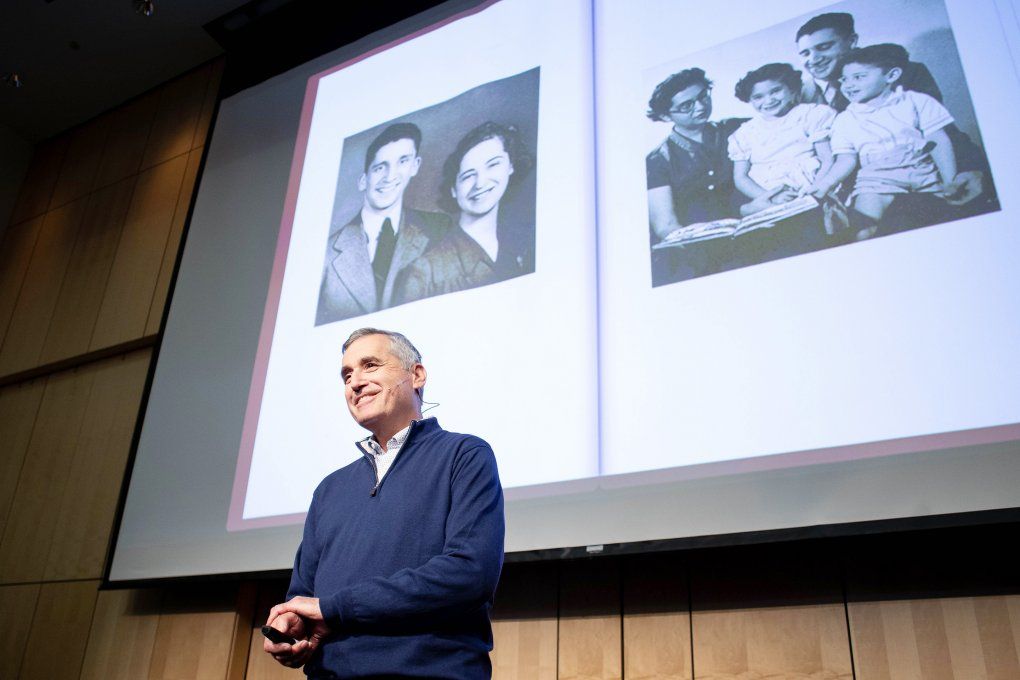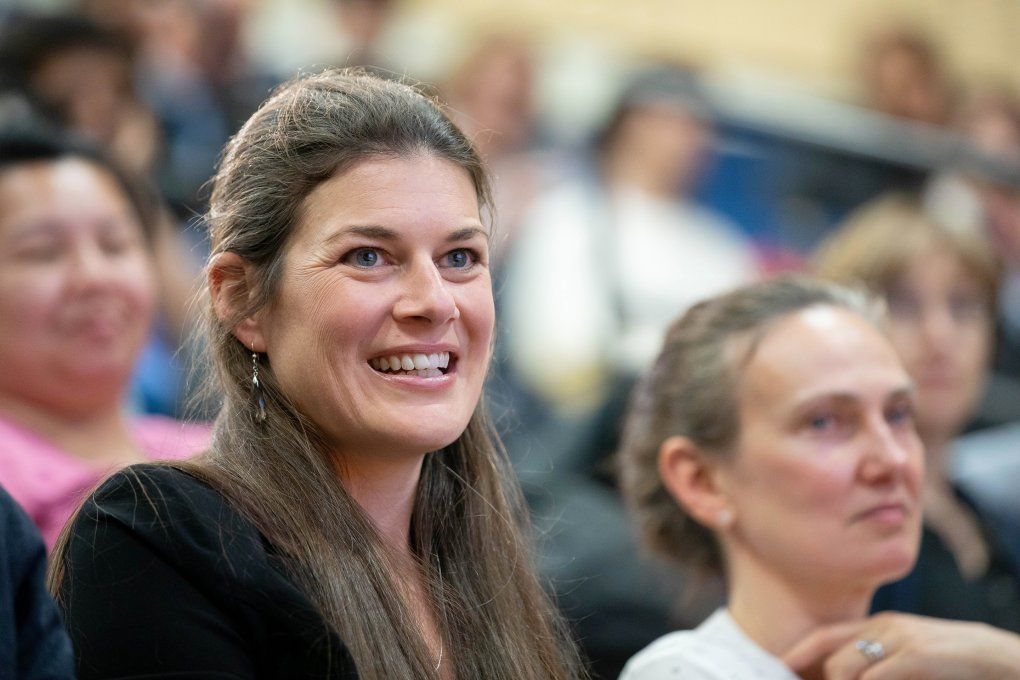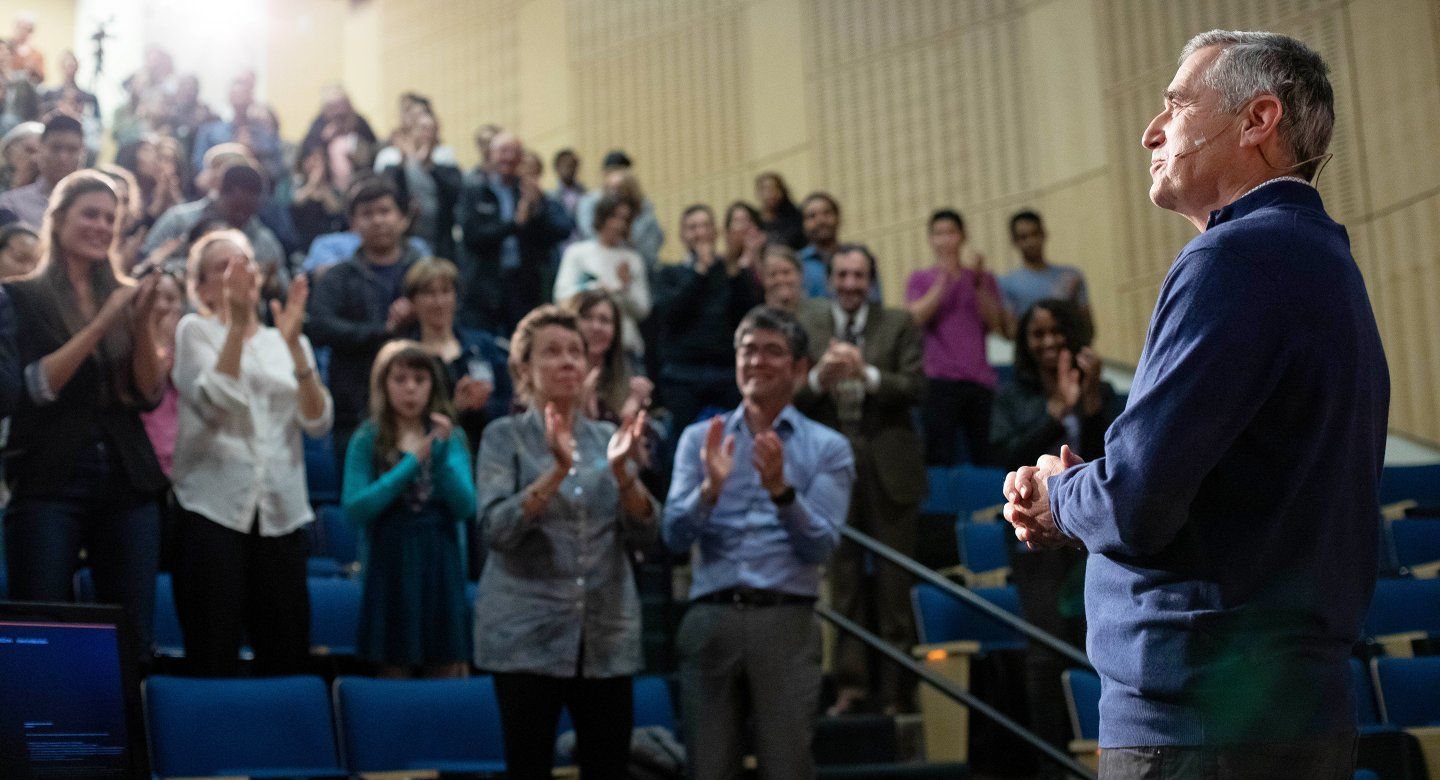David Wofsy Shares Three Wishes in 2019 UCSF Last Lecture
So much of life depends on luck, and not all of that luck is good luck, said David Wofsy, MD, during the 2019 UCSF Last Lecture.
Early in his career, Wofsy was working on an important mouse study when he forgot to close a small opening in some of the cages. The next morning, he discovered that the mice had moved from cage to cage, mixing up the variables, and putting months of lab work to waste.
“What we don’t usually talk about are our failures, our disappointments,” said Wofsy, professor of medicine and the associate dean for admissions for the School of Medicine. “But we get through it because of the support of our family and the support of our institution that lets us keep trying. And because we know that even these disappointments are part of the wave of progress, and that’s what we signed up for.”
Now in its eighth year, the UCSF Last Lecture has become an annual tradition in which a UCSF faculty member is nominated and selected by students to answer the question: “If you have but one lecture to give, what would you say?”
Wofsy delivered his lecture in Cole Hall on April 17, sharing moments of disappointment and happiness from his life and also his hopes for future generations of physicians.
It’s Not Just Talk Here
He shared his pride in UCSF’s public mission, exemplified by its action during the early days of the AIDS epidemic. The disease “could not have more precisely targeted populations of people that were already marginalized from the health care system,” and by-and-large “society as a whole behaved badly,” said Wofsy. While many others turned a blind eye, health care workers at UCSF took care of the sick. “For those of us who were here at UCSF at the time, it’s always a reminder of what it means to be the health care provider for the disenfranchised people in your community. It’s not just talk here,” he said.

David Wofsy, MD, projects pictures of his family during the 2019 Last Lecture. Photo by Susan Merrell
His late wife, Constance Wofsy, MD, worked with Donald Abrams, MD, Paul Volberding, MD, and many others to care for people living and dying with AIDS and started the world’s first dedicated AIDS clinic, Ward 86. Over the years, researchers at UCSF helped transform HIV from a fatal to mostly manageable condition. “When UCSF cites its slogan – ‘Advancing Health Worldwide’ – that’s what it means,” said Wofsy.
It’s easy to take pride in the number of Nobel Prize winners you might run into at UCSF, but “what’s important is what it says about our scientific contribution and how it will affect people who will never walk through our doors,” he said
Almost every day, said Wofsy, there comes a moment when he passes someone in the hallway whom he admires and feels privileged to know, whether it’s a faculty member, a staff member, or a student, and he thinks, “How did I get so lucky?”
Wishes for Diversity, Affordability and Peace
But Wofsy spoke passionately about three things he wished could be improved, two particular to UCSF and one for all physicians.
His first wish was for more diversity at UCSF. “There needs to be a dramatic increase in the diversity of faculty, particularly with regard to African-American faculty, and it needs to happen on a timeline that is entirely unprecedented in our history.” Even though UCSF has made some strides in recent years – an increase from 2.4 percent to 2.8 percent in African-American faculty from 2006 to 2018 – at this rate it would take 120 years for that percentage to match the 12 percent of African Americans in the U.S. population.
“You have to acknowledge you’re part of the problem, not part of the solution,” said Wofsy. He said the solution was to accept no excuses for the snail’s pace. “Set a goal, track progress, and make it happen,” he said.

Susan Wofsy listens to her dad, David Wofsy, MD, associate dean for admissions in the School of Medicine, deliver the 2019 Last Lecture in Cole Hall. Photo by Susan Merrell
His second wish was to make a UCSF education more affordable. “UCSF should be true to the defining characteristic of public education and that’s affordability,” he said. In recent years, the graduation debt from the UCSF School of Medicine has surpassed the graduation debt at its main private competitors. There are no easy solutions, said Wofsy, citing the many competing and equally compelling priorities of the University. But he suggested that adding a line item for student scholarships in the annual budget – distinct from tuition payments and philanthropy – could be an important step in demonstrating that we all share responsibility for achieving this goal.
Thirdly, Wofsy noted that physicians had historically been activists for peace, but worried that they seem to have become numb to the health impacts of war. He cited a New England Journal of Medicine article that demonstrated an increase of 275 civilian, non-combat-related deaths per day in Iraq during the first three years of the Iraq war compared to the three years prior. That was the equivalent of a Twin Tower attack every 10 days for three years, he said. “We just don’t feel the impact of war in the U.S. the way it’s felt in the rest of the world,” he said.
“If this was my last chance to say anything, these things would be on my mind,” Wofsy said of his three wishes.
Reflections on Happiness
He concluded his talk with some reflections on happiness. At the top of his list of happiest experiences would be falling in love. The list would include family, memorable patients, and even baseball, which he described as a “guilty pleasure.” It would also include having played a role in launching the careers of the 2,000 students who have come through the School of Medicine during his time as associate dean for admissions. He took pride in helping to grow the diversity of the class. Without diversity, UCSF would not have helped to launch the White Coats for Black Lives movement. It would not have scoured its curriculum in an effort to remove examples of stereotype threat and manifestations of racism, sexism, and homophobia.
“You don’t have to wait a long time to see the impact of diversity,” he said. “It is all around us.”
Wofsy ended with a quote from former President Barack Obama: “Change will not come if we wait for some other person or some other time. We are the ones we’ve been waiting for: we are the change that we seek.”
